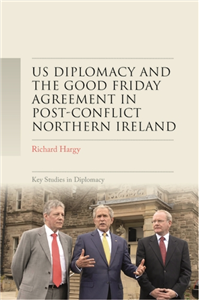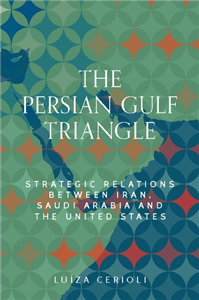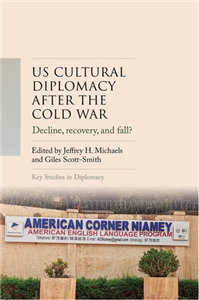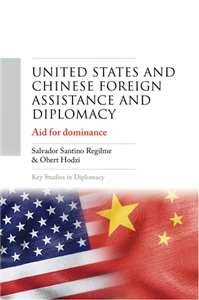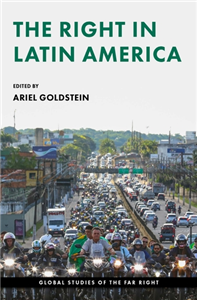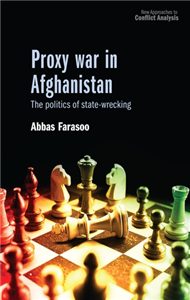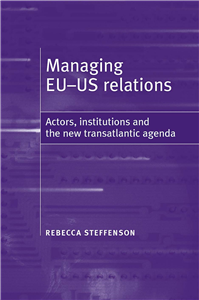Your Search Results
-
Promoted Content
-
Promoted ContentNovember 2021
Joe Biden's America
Introduction to a divided country
by Roland Benedikter
— "A precise, analytical insight into the phenomenon Trump." (Anton Pelinka, Central European University Budapest) — "An introduction to the contemporary US." (Heinrich Neisser, Jean Monnet Chair of European Integration, University of Innsbruck) — "Refreshingly different." (Herbert Dorfmann, Member of the European Parliament) Joe Biden's America is deeply divided. Donald Trump's term in office made many problems of modern US society visible, which Biden now has to solve. What do American politics look like under Joe Biden? What legacy did Donald Trump leave behind, and what kind of impact does it have? How can the deeper causes, factors and drivers of current US developments be put in a historical context? Roland Benedikter provides a thorough insight into a complex country. In a compact and comprehensible way, he explains the background, challenges and perspectives of the Biden era, while also providing an overview of the current state of US society and culture in general. His analysis is suitable for teaching, decision-makers and civil society as an introduction to today's USA.
-
 Trusted Partner
Humanities & Social SciencesNovember 2024
Trusted Partner
Humanities & Social SciencesNovember 2024US public diplomacy in socialist Yugoslavia, 1950–70
Soft culture, cold partners
by Carla Konta
The first comprehensive account of the public and cultural diplomacy campaigns carried out by the US in Yugoslavia during the height of the Cold War, this book examines the political role of culture in US-Yugoslav bilateral relations and the fluid links between information and propaganda. Tito allowed the US Information Agency and the State Department's cultural programmes to enter Yugoslavia, liberated from Soviet control. The exchange of intellectual and political personnel helped foster the US-Yugoslav relationship, yet it posed severe ideological challenges for both sides. By providing new insights into porous borders between freedom and coercion in Tito's regime, this book shows how public diplomacy acted as an external input for Yugoslav liberalisation and dissident movements. Using extensive archival research and interviews, Konta analyses the links between information and propaganda, and the unintended effects of propaganda beyond the control of producers and receivers.
-
 Trusted Partner
Trusted Partner
-
 Trusted Partner
Teaching, Language & ReferenceMay 2025
Trusted Partner
Teaching, Language & ReferenceMay 2025US diplomacy and the Good Friday Agreement in post-conflict Northern Ireland
by Richard Hargy
Richard Haass and Mitchell Reiss, as autonomous diplomats in the George W. Bush State Department, were able to alter US intervention in Northern Ireland and play critical roles in the post-1998 peace process. Their contributions have not been fully appreciated or understood. The restoration of Northern Ireland's power-sharing government in 2007 was made possible by State Department-led intervention in the peace process. There are few references to Northern Ireland in work examining the foreign policy legacy of the George W. Bush presidency. Moreover, the ability to control US foreign policy towards the region brought one of George W. Bush's Northern Ireland special envoys into direct diplomatic conflict with the most senior actors inside the British government. This book will uncover the extent of this fall-out and provide original accounts on how diplomatic relations between these old allies became so fraught.
-
 Trusted Partner
Trusted Partner
-
 Trusted Partner
Humanities & Social SciencesDecember 2024
Trusted Partner
Humanities & Social SciencesDecember 2024Iran, Saudi Arabia and the United States
Power, identity and strategy in the Persian Gulf triangle
by Luíza Cerioli
This book offers a nuanced snapshot of the complex geopolitical dynamics in the Persian Gulf, underlining the interaction between Iran, Saudi Arabia, and the US. Examining their interwoven relations since the 1970s, Luíza Cerioli's framework reveals how changes in US-Saudi ties have ripple effects on Iran-US and Iran-Saudi relations and vice versa. Using a historical lens, she explores how enduring US-Saudi connections hinge on order expectations, delves into the cognitive factors shaping US-Iran enmity and traces the source of oscillation in the Saudi-Iran ties. Employing Neoclassical Realism, the book investigates status-seeking, national identities and leadership preferences, offering a deeper understanding of the region's multipolar system. By combining International Relations and Middle East Studies, Cerioli's work contributes to both fields, unravelling the intricate interplay between international structures, regional nuances and agency in shaping Persian Gulf geopolitics.
-
 Trusted Partner
Humanities & Social SciencesMarch 2026
Trusted Partner
Humanities & Social SciencesMarch 2026US cultural diplomacy after the Cold War
Decline, recovery, and fall
by Jeffrey H. Michaels, Giles Scott-Smith
In the decades following the USSR's collapse, the US has gone from unrivalled hegemon to a position of relative decline. With America 'triumphant' after 1991, its culture, like its diplomatic, military and economic power, remained unmatched. Such favourable circumstances seemed to undercut the need for cultural diplomacy. Why should the US government sell a product that was already selling so well? After 9/11, however, it was apparent the US image was less popular than previously assumed. To reverse this negative image, cultural diplomacy was revived. Despite being beset by internal and external challenges, US officials supported various cultural initiatives and partnerships to promote the American brand globally. Along the way, cultural diplomacy has made use of new forms of expression to promote American culture and build positive foreign relations. The arrival of the second Trump administration in 2025 has clearly signalled an end to using cultural diplomacy to further causes of empowerment and diversity, making the future uncertain for this field of activity.
-
 Trusted Partner
Humanities & Social SciencesJune 2023
Trusted Partner
Humanities & Social SciencesJune 2023Soft power and the future of US foreign policy
by Hendrik W. Ohnesorge
-
 Trusted Partner
Humanities & Social SciencesJanuary 2026
Trusted Partner
Humanities & Social SciencesJanuary 2026United States and Chinese foreign assistance and diplomacy
Aid for dominance
by Salvador Santino Regilme, Obert Hodzi
Aid for Dominance addresses the analytic weaknesses of mainstream analysis of foreign aid, which often focuses on its material dimensions. The book underscores the constitutive relationship between foreign aid as a material resource and the diplomatic discourses and practices that constitute complex bilateral relations between donor and recipient states. Written by two leading scholars of contemporary United States and Chinese foreign policies in the Global South, Aid for Dominance offers a pioneering, theoretically conscious, and empirically rich account of the two great powers' grand strategies in the global development sector. By deploying a multidisciplinary and comparative analysis, this book draws from a wide range of evidentiary materials from primary sources, including data from fieldwork interviews, government documents, local and international newspapers, speeches by high-ranking government officials and diplomats, and secondary data from scholarly publications and policy papers.
-
 Trusted Partner
Humanities & Social SciencesApril 2021
Trusted Partner
Humanities & Social SciencesApril 2021The future of U.S.–India security cooperation
by Šumit Ganguly, M. Chris Mason
-
 Trusted Partner
Trusted Partner
Does Movement Really Make Us Smart?
by Petra Jansen, Stefanie Richter
Media reports often praise movement as a cure-all. But apart from its undisputed positive effect on health, does movement really make us smarter? Consider a national football team, for example – are these excessively sports-driven players automatically the smartest people? Should we simply replace all school subjects with sports? The authors provide a detailed summary of the latest scientific findings on the influence of movement on cognitive ability. They describe the effects of movement, on old age, embodiment, emotion, school as well as other factors that influence cognition. Target Group: teachers, lecturers, psychologists, psychiatrists, neurologists, psychotherapists, movement therapists.
-
 Trusted Partner
Business, Economics & LawJanuary 2026
Trusted Partner
Business, Economics & LawJanuary 2026Latin America and international investment law
A mosaic of resistance
by Sufyan Droubi, Cecilia Juliana Flores Elizondo
Latin America has been a complex laboratory for the development of international investment law. While some governments and non-state actors have remained true to the Latin American tradition of resistance towards the international investment law regime, other governments and actors have sought to accommodate said regime in the region. Consequently, a profusion of theories and doctrines, too often embedded in clashing narratives, has emerged. In Latin America, the practice of international investment law is the vivid amalgamation of the practice of governments sometimes resisting and sometimes welcoming mainstream approaches; the practice of lawyers assisting foreign investors from outside and within the region; and the practice of civil society, indigenous peoples and other actors in their struggle for human rights and sustainable development. Latin America and international investment law describes the complex roles that governments have played vis-à-vis foreign investors and investments; the refreshing but clashing forces that international organizations, corporations, civil society, and indigenous peoples have brought to the field; and the contribution that Latin America has made to the development of the theory and practice of international investment law, notably in fields in which the Latin American experience has been traumatic: human rights and sustainable development. Latin American scholars have been contributing to the theory of international investment law for over a century; resting on the shoulders of true giants, this volume aims at pushing this contribution a little further.
-
 Trusted Partner
Humanities & Social SciencesNovember 2025
Trusted Partner
Humanities & Social SciencesNovember 2025The right in Latin America
by Ariel Goldstein
This book provides an in-depth analysis of the rise and influence of both radical and mainstream right-wing movements across Latin America. Through country-specific case studies, it explores the evolution of these groups and their impact on politics, culture, and governance, highlighting key figures and strategies shaping the political landscape in the region.
-
 Trusted Partner
Humanities & Social SciencesApril 2020
Trusted Partner
Humanities & Social SciencesApril 2020The US public diplomacy in socialist Yugoslavia, 1950-70
by Carla Konta, Giles Scott-Smith, J. Simon Rofe
-
 Trusted Partner
June 2025
Trusted Partner
June 2025Proxy war in Afghanistan
The politics of state-wrecking
by Abbas Farasoo
This book provides a compelling analysis of proxy warfare and its far-reaching implications for statehood, focusing on the conflict in Afghanistan. Introducing the innovative concept of "state-wrecking," it bridges theory and practice to unravel how external support for insurgent actors fuels violence, undermines territorial control and sovereignty, intensifies violence, and dismantles political legitimacy. The work shifts the discourse on proxy wars from the strategies of global powers to the procedural and structural impacts within target states. Grounded in rigorous empirical research, including interviews, archival data, and conflict analysis, the book critically examines the Pakistan-Taliban nexus and the limitations of US-led interventions. By blending a robust theoretical framework with in-depth case studies, it reveals how proxy dynamics shape conflicts, disrupt governance, and challenge international security. This is an essential resource for those seeking to understand the entanglements of modern warfare and the fragility of states under external influence.
-
 Trusted Partner
Trusted Partner
-
 Trusted Partner
Humanities & Social SciencesFebruary 2020
Trusted Partner
Humanities & Social SciencesFebruary 2020The United States in the Indo-Pacific
by Oliver Turner, Inderjeet Parmar
-
 Trusted Partner
Humanities & Social SciencesDecember 2009
Trusted Partner
Humanities & Social SciencesDecember 2009Managing EU-US relations
Actors, institutions and the new translatlantic agenda
by Rebecca Steffenson
This book examines developments in EU-US political and economic relations in the 1990s. It contributes to the existing literature by combining knowledge about actors and institutions to outline the transatlantic decision-making process. It focuses not only on how states co-operate but how they effectively govern the transatlantic marketplace and the international political order through transatlantic institutions. Studying transatlantic governance enables us to understand not only how domestic, or EU level, decision-making structures affect transatlantic decisions but also how transatlantic decisions affect domestic institutions. In short, employing decision-making structures as an analytical approach helps us identify who governs and how, and who or what determines policy outcomes. This book is the result of a comprehensive research project and it includes detailed case studies on EU-US efforts to fight people-trafficking, EU-US regulatory co-operation in the form of Mutual Recognition Agreements and the transatlantic trade dispute over bananas. The book is aimed at anyone with an interest in what transatlantic relations entail outside the confines of NATO security. ;
-
 Trusted Partner
Trusted Partner








